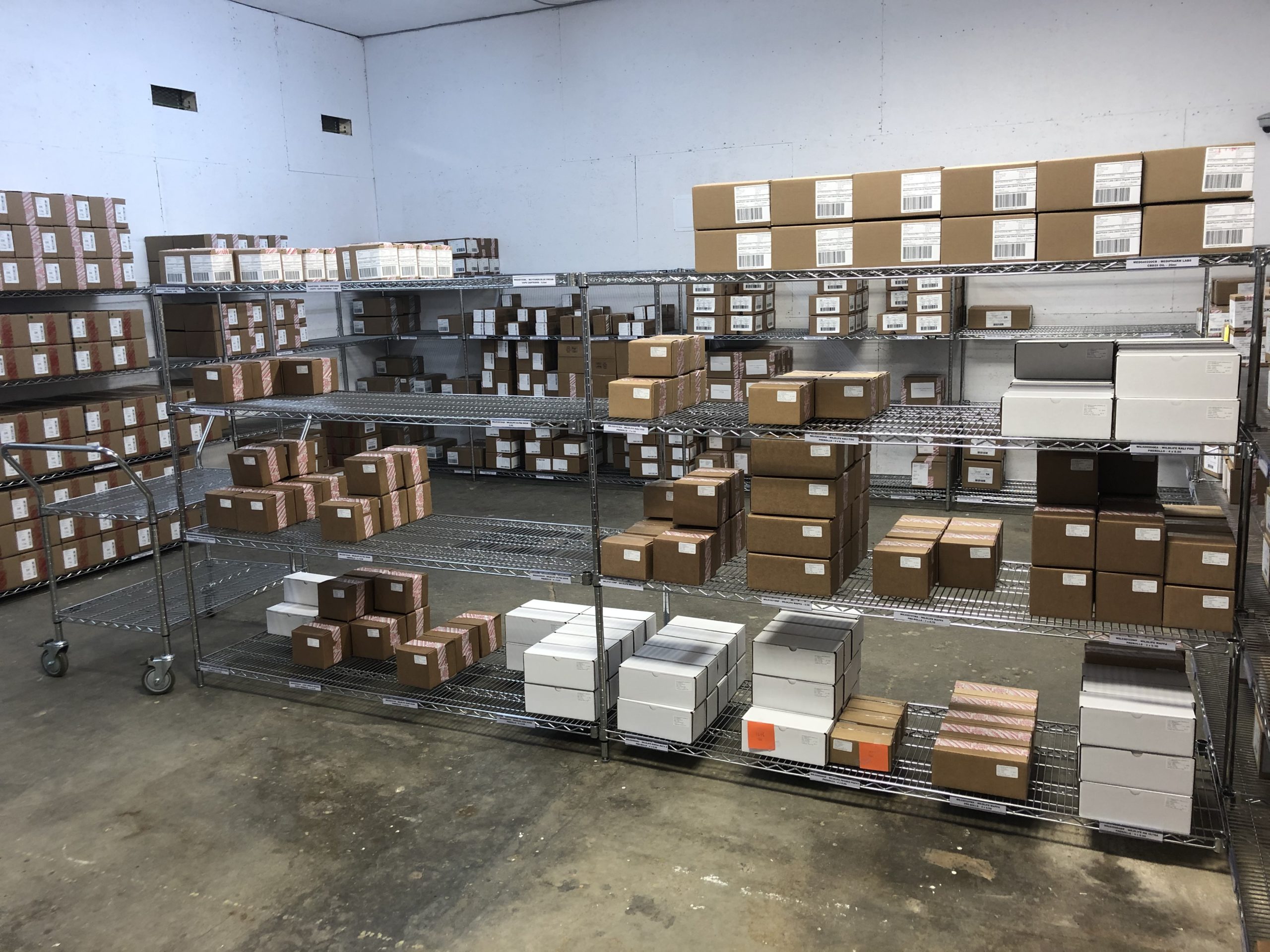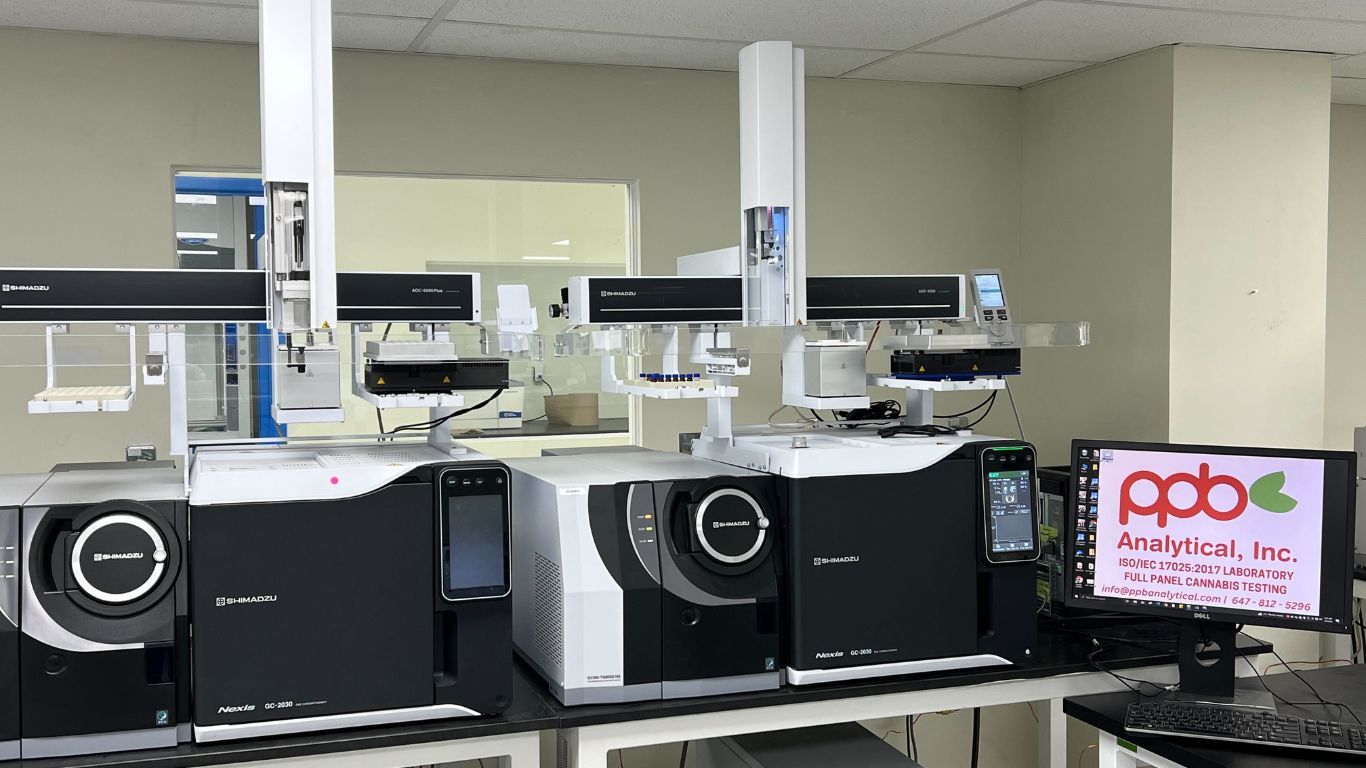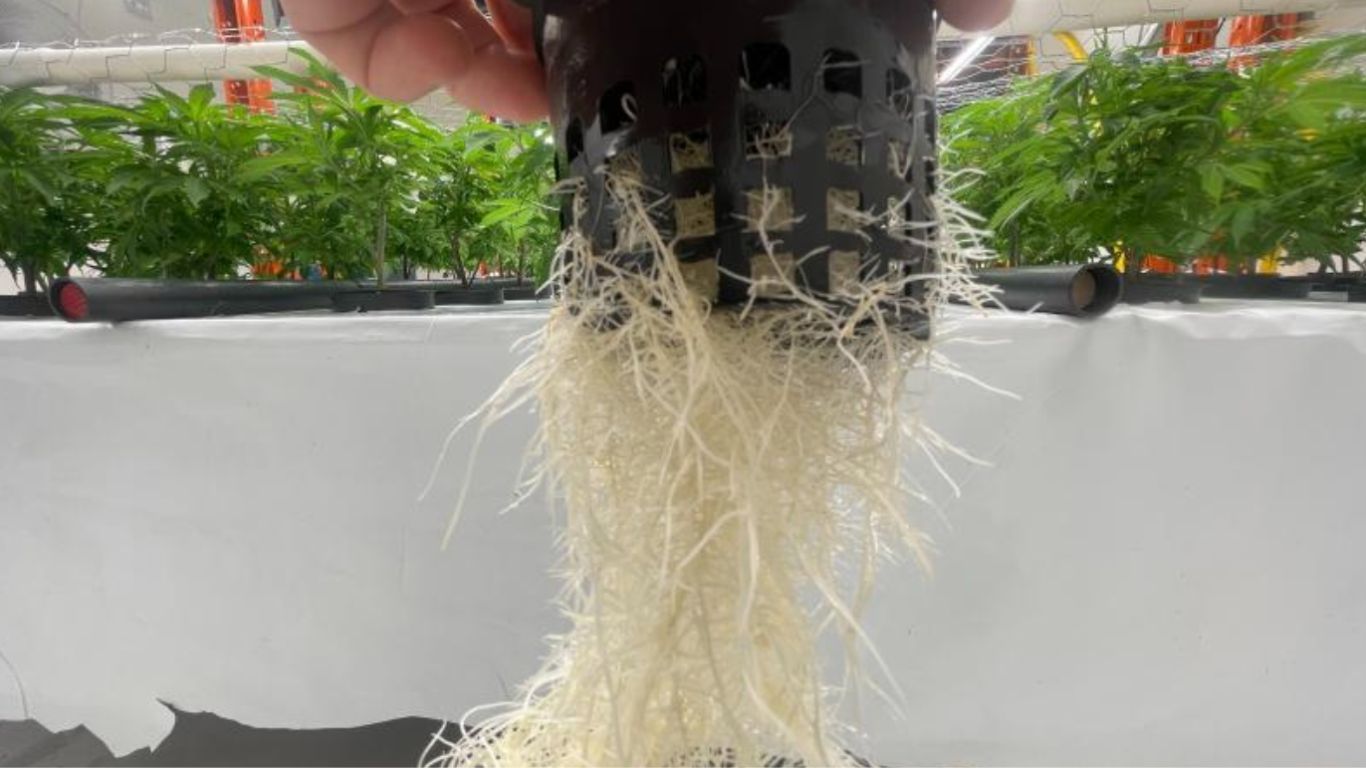
National Cannabis Distribution is a private cannabis wholesaler serving the non-medical Saskatchewan cannabis market. The business, started in late 2018, serves to connect cannabis producers with retailers.
Ross Samuels, the founder of NCD says he spent about 20 years working in the wholesale building materials market in Saskatchewan before becoming excited by the opportunity to create a similar business model in his home province dealing with cannabis.
Our approach is that we are local so we can deliver to just about everybody on the same day or next day, to get their product available so they can start selling to customers.”
When Saskatchewan first announced their plans for private retail and distributors, he and his business partner got to work looking into the provincial regulations. They spent about eight months dealing with finding a facility and bringing it up to the province’s standards, including a large vault and office space inside a 6,000ft2 facility outside Saskatoon, as well as the appropriate provincial licensing.
Once licensed in late 2018, Samuels says he then spent several months building connections with cannabis growers and processors, as well as the growing number of retailers in the province, and explaining the approach NCD would be taking. Although they only secured a few supply arrangements with producers and retailers by March of 2019, he says NCD now handles orders for about two-thirds of the 44 retailers currently operating in Saskatchewan and about a dozen different cannabis producers.
In March 2019, Kiaro Cannabis, a small retail chain with locations in BC and Saskatchewan, was looking to enter the distribution space and eventually acquired NCD, although Samuels says they have a very hands-off approach and give a lot of room to him to manage NCD’s own affairs.
It was hurting their ability to fill orders in time and for stores to even have product to sell.
Saskatchewan is the only province or territory in Canada that has no provincial distributor who handles bulk sales before providing them to retailers, similar to how the provinces handle alcohol. Instead, Saskatchewan allows for private retailers to purchase directly from cannabis producers, as well as issuing licenses to private wholesalers who want to take on cannabis storage and distribution in between distributors and retailers.
While not all retailers or producers want to deal with a third party distributor, and would rather deal directly with each other, Samuels says that as the market matures, more producers and retailers are seeing the value of a wholesaler like NCD.
For producers, he says the benefit is dealing with one contact rather than numerous often small retailers spread through the province, many who often only want relatively small amounts of products at a time. Similarly, for retailers, it’s about being able to order smaller amounts of product without having to deal with product that needs to be kept in storage. So while some producers continue to sell directly to retailers, he says increasingly they are looking to wholesalers like his company.
Another piece, he says, is because Saskatchewan is such a relatively small province in terms of population (just under 1.2 million, or less than half the population of Toronto), many producers simply overlook the Wheat Province entirely, or if they do engage, they don’t understand just how spread out and often how small many retailers in the province are.
“In the beginning, some people looked at us as just a middle man and wondered what we would bring to the table,” says Samuels. “Obviously everyone thinks that you’re adding layers and costs that aren’t needed.
“But starting out while I was going through the licensing process I was contacting licensed producers trying to set up contacts, and Saskatchewan wasn’t even on their radar. A lot of them didn’t have much interest in the province, and if they did, they wanted to go direct. They figured it would be easier to handle sales and deliveries on their own.

“But what I’ve seen is that there weren’t a lot of LPs willing to deal directly with Saskatchewan, and if they did, a lot of it tended to not be the greatest product, often leftovers from other provinces. As stores expanded and many of the LPs realized that Saskatchewan is spread out, some of the stores are small in comparison to other settings so the orders weren’t that big, so it was harder to set up, say, thirty different deliveries to 30 different stores rather than one central distributor.
It means you can start small, you can purchase small amounts, see if consumers are happy with it, and then find out what works in the market.
“It was hurting their ability to fill orders in time and for stores to even have product to sell. Our approach is that we are local so we can deliver to just about everybody on the same day or next day, to get their product available so they can start selling to customers.”
What all of this meant for NCD, says Samuels, is they were able to help bridge that gap and help retailers source product that they might not otherwise have access to. And for producers, it helped them manage a large amount of small and diverse retail locations.
One of the benefits of Saskatchewan’s unique approach to cannabis retail, he says, is that it’s actually turned the province into a much more welcoming place for smaller producers who the larger provincial distributors are still overlooking. Because many provinces only want to sign supply deals with producers who are able to satisfy very large orders over long periods of time, the micro and small batch producers are sometimes ignored.
Because Saskatchewan leaves this to the private market, he says it’s meant these small producers can find shelf space in Saskatchewan where other provinces have overlooked them. While the larger producers might not see a smaller market like Saskatchewan as important compared to the more populated provinces, it means Saskatchewan is in a unique position to allow a more consumer friendly, craft market.
“There really wasn’t much of a competitive advantage for us for dealing with the large LPs, so we spent time pounding the pavement and working the phones, trying to find out if this is a good place for somebody who is not a large producer and doesn’t want to, or can’t, ship hundreds of thousands of kilos of product at a time. It means you can start small, you can purchase small amounts, see if consumers are happy with it, and then find out what works in the market. They can listen to customers in the stores and respond to that demand.
That has made it easier for micros and true craft producers to get to market and they don’t have to fill hundreds of stores. They can start with small batches and get it out to people who are really looking for this product.
“So that’s how we’re finding out what the market really wants, by listening to the retailers who are listening to the customers in their stores. Not just by what is being pushed down by someone else telling us what we need.”
As the industry grows, Samuals is excited to see more smaller producers come on line who perhaps take more care with their product, and who can provide the kind of cannabis consumers truly seek out.
“A year ago you could turn to any social media outlet and hear the complaints from consumers – that it’s too dried, that it’s taxed to death – so we started with premium products that people are looking for. So the legacy players coming into the legal space has been such a breath of fresh air, such a change and Saskatchewan has proven, I think, to be a great market and very welcoming.
“It’s been awesome to get involved with the stores we are working with. We have independent operators and chains, and these are all people who are passionate about what they are doing and really care about the product and the relationships with the industry. It’s a small town community atmosphere here and it comes through in business as well. That has made it easier for micros and true craft producers to get to market and they don’t have to fill hundreds of stores. They can start with small batches and get it out to people who are really looking for this product.”












